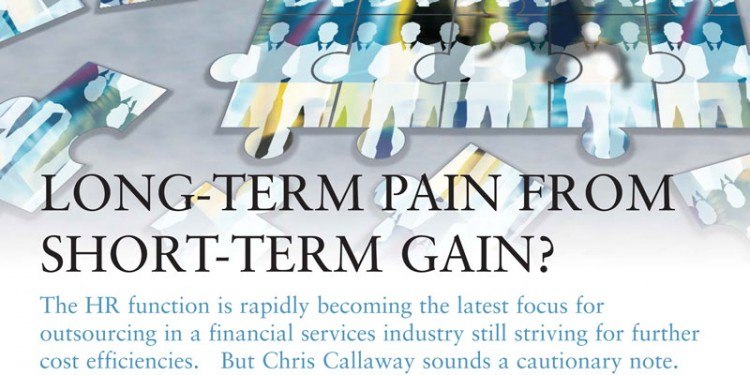The HR function is rapidly becoming the latest focus for outsourcing in a financial services industry still striving for further cost efficiencies. But Chris Callaway sounds a cautionary note.
Many readers may have been surprised to learn from Wanda Warhaftig’s article on outsourcing and offshoring in the last issue of Argent that relatively-few customer call-centres are actually outsourced, and only a small proportion of these are located offshore. IT is by far the largest sector in terms of global outsourcing, but human resources is in second place, accounting for about 15% of all outsourcing.
There is no doubting the recent growth in outsourcing – expenditure in Europe, for example, doubled between 2002 and 2004 – nor that these trends are likely to continue. A recent survey suggests that 57% of HR professionals see outsourcing as a way of concentrating on more important issues, with only 19% seeing it as a threat to HR. There has, of course, been a degree of adverse press coverage, but this has tended to focus on customer-contact centres based in India and on ill-starred government IT contracts, and companies will be encouraged by further developments such as the recently-announced ten-year $575m deal between BT and Accenture.
In fact, the consensus amongst the pundits is that these trends will accelerate in the medium term, with single process HR outsourcing (worth £27 billion in 2004) projected to increase to more than £42 billion in 2008, and multi-process outsourcing (where organizations outsource more than one element of, in this case, HR to the same company) expected to grow by 21% a year to $7 billion in four years time.5 Such rapid growth clearly reflects the desire and opportunity for significant cost-cutting6 and process streamlining, but it is important to recognize that there are certain tactile areas to which outsourcing cannot add value without potential downsides elsewhere in the organization.
To read the full article, please download the PDF above.

